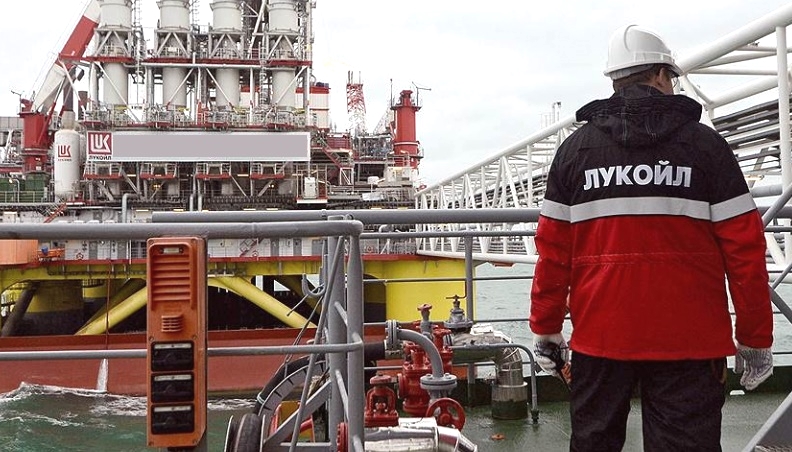Companies from Kazakhstan and Russia may soon be conducting joint exploration of the Zhenis oil and gas field in Kazakhstan’s sector of the Caspian Sea. Earlier this week representatives signed a memorandum of understanding (MoU) and negotiated a protocol that would guide the work.
State-owned KazMunayGas (KMG) and the Russian company Lukoil were given rights to subsoil use in the Zhenis field, which is expected to create jobs for local Kazakhstani nationals. Astana and Moscow are now one step closer to inking a contract.
Early last year the head of Lukoil, Vagit Alekperov, first announced the company’s intent to explore two oil and gas fields located along Russia’s border.
“Our geologists are counting on discovery as the central waters of Kazakhstan are promising for geological exploration,” Alekperov said at the time, according to TASS. “We are interested in participating, and very positive about the results of the Caspian Sea.”
Zhenis lies at a depth of 75 to 100 meters and is located 180 kilometers from Kazakhstan’s Aktau port. According to the MoU, a joint consortium will be formed that will oversee well drilling and seismic work, which is expected to take place in two phases and cost roughly $270 million.
The project in Kazakhstan will not be a first for Lukoil, which has been involved there since 1995. Together with Rosneft, the company has been responsible for exploration of the Tengiz oil and gas field, which ranks as the world’s deepest supergiant oil field. Gazprom, another Russian company, is about to start commercial development at the Tsentralnoye and Imashevskoye fields in Kazakhstan.
Meanwhile, Zhenis has not always been an attractive prospect to foreign investors. In the first decade of this century, some of the world biggest energy companies were eager to invest in Kazakhstan’s petroleum industry, as global crude prices were on the rise at that time and some investors had high hopes for developing the country’s 30 billion barrels of proved oil reserves – putting it at number 11 globally.
But in 2011, the situation changed. An unsuccessful exploration by Lukoil of the Atash and Tyub-Karagan fields resulted in the drilling of dry wells, coming at a time when the Kazakhstani government in Astana was revising its tax policy that scared away foreign investment. As a result, in 2012 France’s Total announced its withdrawal from Zhenis, which it had been eyeing. Italy’s Eni, the United States' ConocoPhillips and Norway’s Equinor (then Statoil) subsequently left some other projects in Kazakhstan.
Kazakhstani officials ended up overhauling the tax policy. Now, instead of paying historical costs, mineral extraction tax and excess profits tax, there is an incremental alternative tax that takes into account the volatility of oil prices. For example, if the price of oil is below $50 per barrel, the tax bill is zero. Prices above $50 incur a progressing tax rate that reaches 30 percent for oil priced at $90 a barrel.
“The legislation has changed there, we constantly promoted this with our colleagues from Kazakhstan, [and now] the legislation allows us to have a good rate of return on complex fields,” Lukoil’s CEO said in 2018.







 The Islamic holy month of fasting, Ramadan comes to an end this week with the celebration of a joyous festival called Eid (meaning “festival” in Ar...
The Islamic holy month of fasting, Ramadan comes to an end this week with the celebration of a joyous festival called Eid (meaning “festival” in Ar...
 Iran's senior military leaders described the drone and missile attack on Israel on April 14 night as “successful".
Iran's senior military leaders described the drone and missile attack on Israel on April 14 night as “successful".
 Azerbaijan officially unveiled the logo for the upcoming 29th session of the Conference of the Parties to the United Nations Framework Convention o...
Azerbaijan officially unveiled the logo for the upcoming 29th session of the Conference of the Parties to the United Nations Framework Convention o...
 Iranian President Ebrahim Raisi warned Israel that it would face a "real and extensive" response if it makes any "mistake" following Tehran’s missi...
Iranian President Ebrahim Raisi warned Israel that it would face a "real and extensive" response if it makes any "mistake" following Tehran’s missi...



